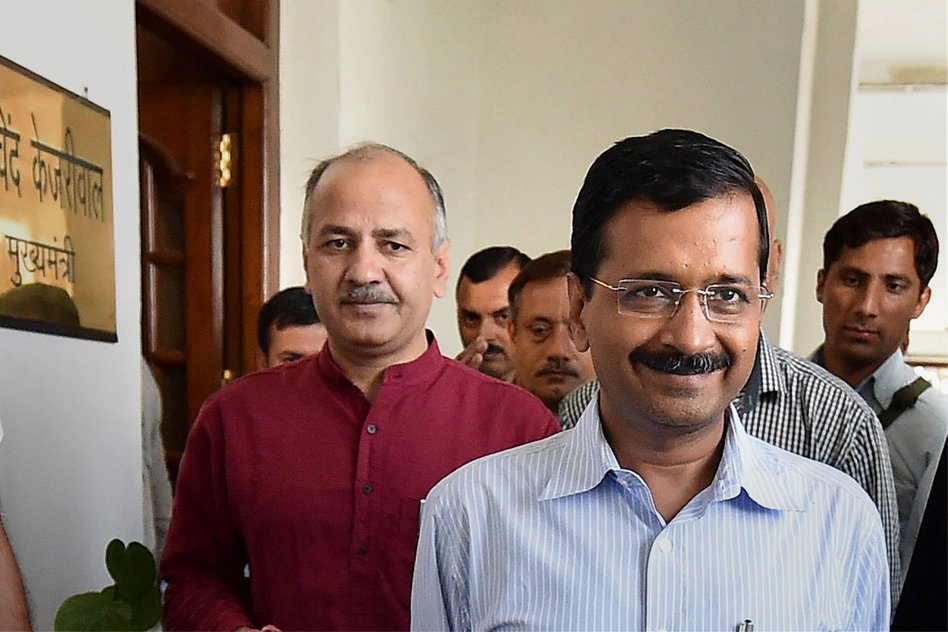Image Courtesy: siliconeer
Budgets define the course of a state and of a nation, it is reflective of how well representatives are attentive to the needs of the people. India has very often been criticized for overlooking health and education expenditure as a percentage of GDP and it is for that reason that the Delhi Budget presented recently is something which deserves to be noticed, from record allocations to health, education and infrastructure to making Delhi a state with minimum tax without compromising revenue, let us look at some of the important aspects of the Delhi Budget.
The Delhi government on Monday presented their second annual budget. The Deputy Chief Minister of Delhi, Manish Sisodia, who also holds the Finance portfolio, presented a ‘zero tax budget’ with an aim to cut Value-Added Tax (VAT) rates on several items. The decision of slashing VAT is taken in a bid to increase the tax net in Delhi, though 65 percent of Delhi government’s revenue stream for development comes from collections of VAT.
The budget implies slashing of the prices of sweets, namkeen, readymade garments, watches, shoes, school bags and it continues to focus on education, health and transport sectors. Sisodia presented an annual budget of Rs 46,600 crore, with expenditure plan at Rs 20,600 crore, of which 23 per cent (Rs 4,645 crore) was allocated to education, 19 per cent (Rs 3,943 crore) to transport and 15 per cent (3,200 crore) to health sector.
Education
A total expenditure of Rs 10,690 crore,it is among the highest allocations to the sector by any state in the country. 21 new schools and 8,000 new classrooms are currently under construction. For comparison, Meghalaya allocated 27.8% to education in 2015, Assam 21.5%, Bihar 21.4% and Chhattisgarh 20.1%.
Rs 102 crore has been allocated for advanced teachers’ training in foreign universities and Rs 152 crore to impart vocational training to students from class IX to class XII.
Health
Delhi’s 15 per cent allocation on health is the only double-digit allocation for health by any state. The highest allocation on health so far has been 6.8 per cent by Puducherry and 6.6 per cent by Rajasthan in 2015.
The Delhi government has allocated Rs 5,259 crore to healthcare in this year’s budget. This is 10 per cent more than what had been allocated last year. The government is focusing on setting up 1,000 Mohalla clinics and 150 polyclinics across Delhi in the next one year, so that anyone can easily avail healthcare facilities. The government has also allocated Rs 410 crore to supply free medicines.
Transport
Just two weeks before the start of second phase of the odd-even policy, the AAP government has allocated a major portion of funds to transport and road infrastructure, to curb Delhi’s pollution. A plan outlay of Rs 1,735 crore has been suggested for public transport and Rs 2,208 crore for road infrastructure. The government will procure 1,000 new standard low-floor non-AC buses this year to add to the existing 4,461-bus DTC fleet. Another 1,000 buses will be hired under the cluster scheme to add to the 1490 cluster buses operational in Delhi. The government is also planning to build new bus depots at Rewla Khanpur, Dichaun Kalan, Karkari Nahar, Bawana Sector-1 and Dwarka Sector-22. The government is also focusing on e-rickshaws, environment-friendly vehicles, with plans to increase the existing subsidy granted to them from Rs 15,000 to Rs 30,000.
BRT Corridors
The government has initiated the demolition of south Delhi’s BRT corridor and announced that it will construct two elevated BRT corridors from Anand Vihar Terminal to Perragarhi in the east-west and from Wazirabad to the airport in north-south.
Some other notable provisions of the budget
Allocation of Rs 676 crore to provide drinking water to all authorised and unauthorised colonies by December 2017 through pipelines.
A tax of 5 per cent shall be imposed on plastic waste, which was till now tax-free.
A tax of 20 per cent on tobacco and related products, like cigarettes, bidis, khaini and zarda.
Extension of the subsidy scheme on electricity for the next fiscal, with an allocation of Rs 1,600 crore.
E-Ration Card Portability has been launched to enable people to procure ration from shops of their choice.
The Logical Indian thanks the Delhi government for giving due attention to Education and Health sector among other key issues which needed immediate attention as pointed out by many economists. We hope it is properly implemented and at the same time, request taxpayers to be vigilant and keep public representatives at their toe.











